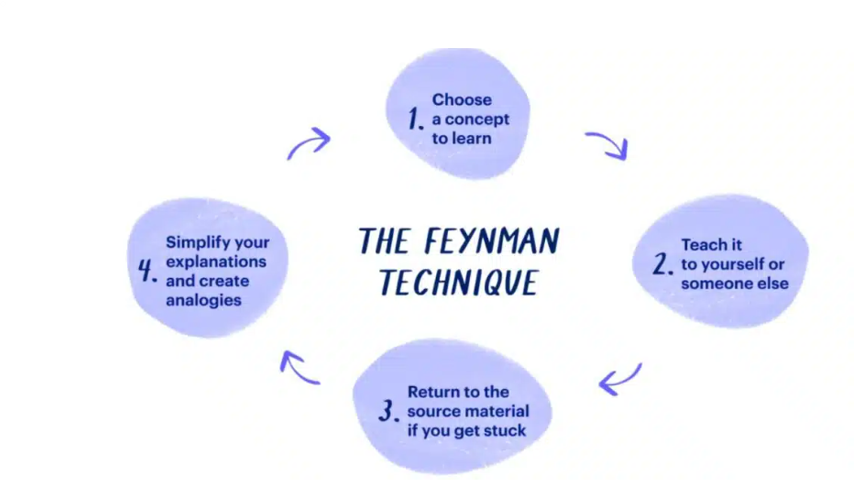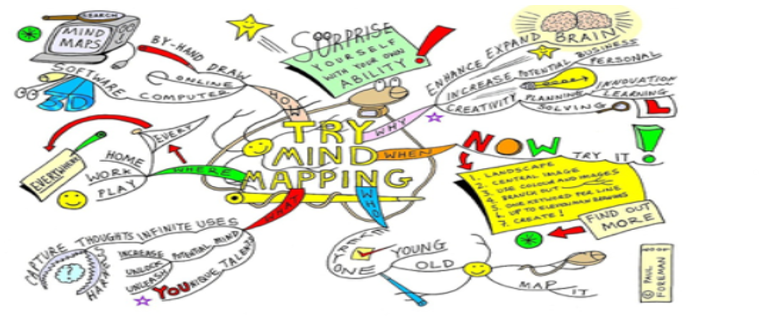Effective Last-Minute Revision Techniques: Study Smarter, Not Harder
Running out of time before exams? Discover 7 proven last-minute revision techniques to study smarter, retain more, and reduce stress. Ace your test now!
Exams are stressful, and sometimes, despite our best efforts, we find ourselves with very little time left to prepare. If you’re in a situation where your exam is right around the corner and you feel overwhelmed, don’t panic, we are here to help you.
Once you have determined which topics are most likely to appear in the exam, create a mini revision plan. Write down the subjects you need to cover and allocate time-based on difficulty level. Start with the areas where you feel the least confident, as revising these first will give you the best chance to grasp key concepts before exhaustion sets in. As you move forward, reinforce what you already know by quickly revising well-understood material. This method ensures maximum productivity in minimal time.
1) Prioritise and Plan Effectively- The 80/20 Rule:
When time is limited, it is essential to study strategically rather than attempting to cover everything. The 80/20 rule, also known as the Pareto Principle, states that 80% of exam success comes from 20% of the most critical topics. Instead of skimming through an entire textbook, identify high-yield topics by revising past exam papers, syllabi, and teacher-provided study guides.
Once you have determined which topics are most likely to appear in the exam, create a mini revision plan. Write down the subjects you need to cover and allocate time-based on difficulty level. Start with the areas where you feel the least confident, as revising these first will give you the best chance to grasp key concepts before exhaustion sets in. As you move forward, reinforce what you already know by quickly revising well-understood material. This method ensures maximum productivity in minimal time.
2) Engage in Active Learning: Study Smarter, Not Harder:
Many students resort to passive learning methods such as reading and highlighting, but these are not effective ways to retain information. Instead, engage in active learning techniques that force your brain to work harder and improve recall.
Active Recall: This method focuses on testing your knowledge instead of passively reading. To practice active recall, cover your notes and try to recall the information you’ve studied from memory. If you struggle to remember, go back to the material and revisit it. The process of forcing yourself to recall the information strengthens your memory and helps identify areas that need more attention.
Feynman Technique: This technique involves explaining a concept in the simplest terms as if you’re teaching it to a child. By doing this, you test your understanding of the subject. If you find yourself stuck or using complex language, it’s a sign that your grasp on the topic might not be strong enough. Rewriting the explanation in simpler terms helps clarify your own understanding.
Mind Maps and Summaries: Visualizing concepts with mind maps, diagrams, or flowcharts can help link different pieces of information together. When you summarise information, you are forced to distill the key points, which reinforce your understanding. Mind maps help you see how different topics relate to each other and make it easier to recall complex concepts.
By engaging in active learning, you not only strengthen your understanding but also improve long-term retention, which is crucial for performing well under pressure.
3) Master Time Management: The Pomodoro Technique:
Studying efficiently in a short time requires effective time management. The Pomodoro Technique is one of the best ways to maintain focus and avoid burnout. This method involves dividing study sessions into 25-minute intense focus periods, followed by short 5-minute breaks. After completing four such cycles, take a longer 15–20-minute break.
This method works efficiently because:
It prevents mental fatigue by allowing the brain to reset.
It enhances concentration by keeping distractions in check.
It helps maintain motivation as shorter study bursts feel more manageable than long, uninterrupted hours.
If you’re running short on time, you can modify the intervals to 40-minute study sessions with 10-minute breaks for a more intensive approach.
4) Boost Memory Retention with Effective Techniques:
Memorization plays a crucial role in last-minute revision, and using the right techniques can drastically improve your ability to recall information. Here are some effective memory-enhancing strategies:
Mnemonics and Acronyms: This method helps in remembering lists or sequences of information. By creating memorable and easy-to-recall phrases, you reduce the cognitive load required to memorize complex data. For example, the acronym PEMDAS is used to remember the order of operations in mathematics (Parentheses, Exponents, Multiplication, Division, Addition, and Subtraction).
Spaced Repetition: This technique involves revising material at increasing intervals over time, which helps improve long-term retention. Rather than cramming all the information in one go, spaced repetition allows your brain to consolidate the information over multiple exposures.
Apps like Anki or Quizlet automate this process, showing you the material at specific intervals to maximize recall.Chunking: Breaking large pieces of information into smaller, meaningful sections makes memorization easier. For instance, when trying to memorize a phone number, it’s easier to remember 123-456-789 than 123456789 because your brain can organise the information into smaller chunks.
Combining these techniques with active recall will significantly enhance your ability to retain key information, even with limited time.
5) Use Exam-Specific Strategies:
Different subjects require different approaches. For math, you need more practice whereas for literature and history, you need to learn topics in a story format.
Mathematics & Science: These subjects often require practice, especially in problem-solving. Instead of just reading through the material, focus on solving as many past exam papers and sample problems as you can. Understanding the steps in problem-solving, such as applying formulas and techniques, is more valuable than memorizing theoretical concepts. Also, work on revising important formulas and derivations.
Theoretical Subjects (History, Literature, Sociology): These subjects are often about understanding key events, themes, and theories. Quickly skim through important summaries, definitions, and event timelines. Flashcards can be especially useful for memorizing important dates, concepts, and definitions. Flashcards promote active recall, helping you remember details more efficiently.
Essay-Based Subjects: In essay-based exams, it’s essential to focus on structuring your responses effectively. Rather than memorizing whole essays, practice outlining them. This includes identifying key points, arguments, and examples that would support your thesis statement. Quick practice in structuring essays in your mind can help you write a well-organised response under time pressure during the exam.
Understanding the format of your exam and the type of questions that will be asked allows you to study with purpose and efficiency.
6) Reduce Stress and Maintain Focus
There can be many reasons why a person is studying at a very last minute but regardless of what the reason is the stress remains inevitable when studying at the last minute but managing it effectively can make a big difference in your performance. We have added some techniques which can help you in managing your stress:
Breathing Exercises: Breathing exercises are simple yet effective techniques to reduce anxiety and improve focus. A popular method is the “4-4-4 technique”: inhale for 4 seconds, hold for 4 seconds, and exhale for 4 seconds. This rhythmic breathing helps calm your nervous system, reduces stress, and allows your mind to focus better. By practicing these deep breaths, you signal your body to relax, which can help you manage exam-related pressure.
Healthy Nutrition: Nutrition plays a vital role in cognitive function. Eating brain-boosting foods like nuts, yogurt, and leafy greens can improve focus and memory. Protein-rich snacks, such as almonds or walnuts, provide sustained energy while avoiding sugary snacks prevents energy crashes that could negatively impact your concentration. Proper nutrition helps maintain steady blood sugar levels, ensuring your brain has the fuel it needs to function optimally.
Power Naps: If you’ve had little sleep and need to stay alert, a 20-minute power nap can work wonders. Power naps allow your brain to rest without going into deep sleep, which can make you feel groggy. This short burst of rest helps improve focus and alertness, preparing you to continue studying efficiently without feeling drained. However, avoid napping too long, as it may disrupt your sleep cycle later.
Caffeine Management: While caffeine may seem like a quick fix to stay awake, it can cause jitters and negatively impact concentration, especially if consumed in excess. Rather than relying on coffee or energy drinks, opt for green tea, which provides a milder caffeine boost, or water to stay hydrated. Green tea also contains L-theanine, which helps improve focus and reduces stress. Hydration is key to maintaining brain function during intense revision.
7) The Night Before the Exam: Final Preparations:
Skim Over Notes: Rather than trying to memorize entire chapters, focus on skimming over your summaries, key concepts, and the most critical topics. The goal is to refresh your memory of the material you’ve already studied, not cram new information. A quick glance at your most important notes will reinforce your knowledge and keep your mind sharp without overwhelming it.
Practice Deep Breathing: If you’re feeling anxious or overwhelmed, use deep breathing exercises to calm your nerves. Slow, deep breaths activate the parasympathetic nervous system, which helps reduce stress and improve clarity. This practice can keep you focused and prevent panic the night before your exam.
Sleep Well: It’s crucial to get a good night’s sleep before your exam. Avoid the temptation to pull an all-nighter, as your brain consolidates memories while you sleep. A well-rested mind is far more efficient at recalling information, problem-solving, and staying calm during the exam. Aim for at least 7-8 hours of sleep to optimize your performance.
Last-minute revision doesn’t mean stuffing as much information as possible into your brain rather it means studying strategically. By prioritising key topics, using active recall, managing your time efficiently, and taking care of your mental and physical well-being, you can significantly improve your exam performance, even with limited time.
Remember, “Success is the sum of small efforts, repeated day in and day out.” Whether you’re revising a week in advance or just a night before, using these techniques will help you absorb more, and less stress, and perform your best.
Last-Minute Easter Rescue!
Struggling with exams?
Our Easter crash courses will help you:
• Master key topics fast
• Learn memory hacks
• Boost confidence before Exam day change this text.






















